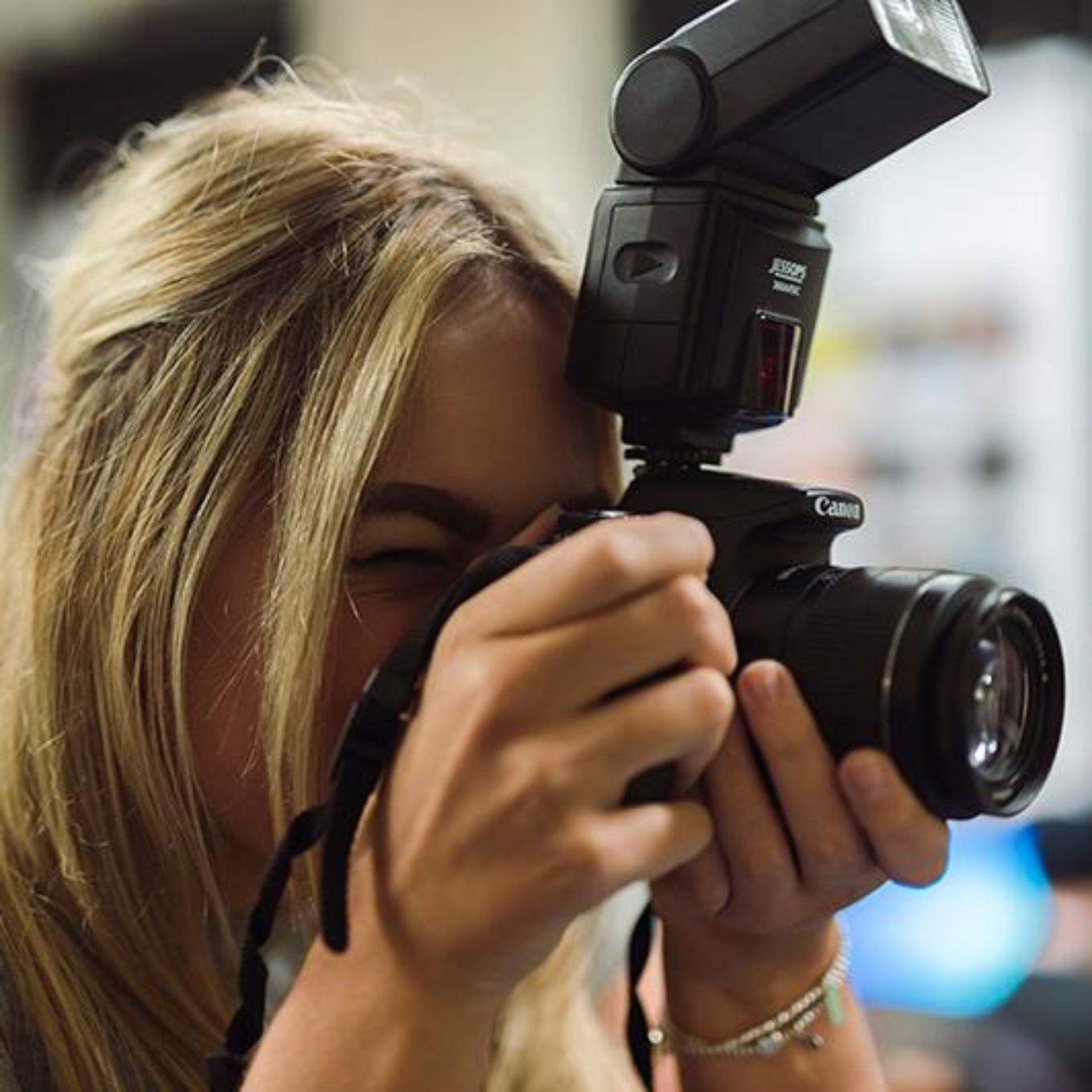
Course details
UCAS Code
W990
Year of entry
2026
Duration
3 YRS (FT)
UCAS Tariff
96-112
Institution Code
G53
Location
Wrexham
Why choose this course?
Our innovative, multi-genre BA (Hons) Photography course offers a degree that blends creativity, technical excellence and professionalism.
You will:
- Benefit from our newly installed specialist infinity studio space and equipment, allowing you to experience industry-standard practices
- Exhibit work at professional on-campus galleries and festivals
- Gain free access and advanced tuition in all Adobe Creative Cloud software
- Engage in national and international competitions and commissions, allowing you to gain live brief experience
- Have access to music events and festivals, allowing you to gain experience of live photography
- Gain versatile transferable skills applicable across the creative sector
- Have networking opportunities via our strong industry connections
- Learn from an experienced teaching team with a background in creative industries
Key course features
- The course offers creative entrepreneurship, professional practice and marketing modules, allowing you to develop entrepreneurship and business skills.
- Gain practical experience of industry-standard crafts, technologies and new environments throughout the course
- Work with professional models and actors
- Develop a traditional and alternative professional portfolio
- The course offers publishing experience – traditional self-publishing, E-publishing and web and social media development
What you will study
YEAR 1 (LEVEL 4)
Year 1 provides introductory skills in design and critical analysis will be developed. There will be an emphasis on creative problem-solving and basic research methodologies.
MODULES
- Creative Lens & Light-Based Media
- Contemporary Themes
- Time as Visual Language
- Introduction to Industry
YEAR 2 (LEVEL 5)
Level 5 will focus on advancement in research skills and design methodologies. You will focus on synthesising theory and practice, with an emphasis on emerging trends.
MODULES
- Creative Futures Making a Living
- Specialist Study
- Print & Production
- Visual Language & Culture Contexts
YEAR 3 (LEVEL 6)
During level 6, high-level research skills, critical thinking, and professional practice will be the focus. There will be independent projects and your collaborative work will demonstrate advanced understanding and application.
MODULES
- Practice As Research
- Presenting Practice to Audience
The information listed in this section is an overview of the academic content of the programme that will take the form of either core or option modules. Modules are designated as core or option in accordance with professional body requirements and internal academic framework review, so may be subject to change.
Entry requirements & applying
The academic requirements for the course are 96-112 UCAS tariff points at GCE A-level or equivalent but all applications are considered on an individual basis, and we also take work experience into consideration, vocational training/qualifications as well as individual motivation and potential are also key aspects in selection.
Teaching & Assessment
You will learn via a blend of lectures, contextual workshops, seminars and practical / technical workshops in the studio environment and on location.
Teaching and Learning
We offer workshops and support sessions in areas such as academic writing, effective note-making and preparing for assignments.
Students can book appointments with academic skills tutors dedicated to helping deal with the practicalities of university work. Our student support section has more information on the help available.
In terms of particular needs, the University’s Inclusion Services can provide appropriate guidance and support should any students require reasonable adjustments to be made because of a recognised prevailing disability, medical condition, or specific learning difference.
Career prospects
Your degree will prepare you for work in art and design, film and photographic industries and in education.
Photography, like all of our Art and Design undergraduate programmes, has a strong vocational and academic ethos that aims to ensure graduates acquire a range of vocationally relevant skills. Integral to this ethos is the responsibility to ensure that our graduates have a portfolio of abilities and attributes which will allow them to thrive in the 21st century workplace. It takes into account the fact that the future needs of the creative industries are likely to be very different. It therefore aims to prepare ‘independent learners’ who on completion of their studies are able to flourish within increasingly diverse professional contexts.
You will gain a high level of realistic and practical experience of working in the professional creative environment whilst you are on the programme. You are encouraged to initiate, organise and participate in off-site projects and engage in professional opportunities, including commercial activities that have the potential to launch their career in photography.
Many Photography graduates go on pursue careers as:
- Freelance Photographer
- Picture / Photo editor
- Wedding Photographer
- Editorial Photographer
- Sports Photographer
- Documentary Photographer
- Photojournalist
- Fashion Photographer
- Product Photographer
- Director of Photography
- Cinematographer
- Photo Retoucher
- Photography Lecturer
- Gallery / Museum Assistant
- Gallery / Museum Curator
- Photo Archivist
- Photographic Printer
Further study opportunities are also available at MA or PGCE level.
Fees & funding
You do not have to pay your tuition fees upfront.
The fees you pay and the support available will depend on a number of different factors. Full information can be found on our fees & finance pages. You will also find information about what your fees include in the fee FAQs.
All fees are subject to any changes in government policy, view our undergraduate fees.
For international students looking to study this course please see our international fees.
Accommodation
At Wrexham University, we offer on-campus en-suite rooms within our Wrexham Student Village. These private, fully furnished spaces are conveniently located, providing easy access to campus facilities, study areas, and social spaces. Plus, you’re just a 10-minute walk from the city centre!
With all bills included, free Wi-Fi, 24/7 security, and large social areas, you’ll find everything you need for a great student experience.
Explore our student accommodation options to find your perfect home away from home.
Subject to re-validation
As part of its continuous quality assurance and enhancement, the University reviews its courses on a regular basis to ensure that they reflect the needs of students and employers. Periodic review of the existing programmes is required every five years and major changes may be made to the programmes during the re-validation process. As soon as the programmes are re-validated the details of the course will be confirmed. The majority of courses that are still ‘subject to re-validation’ are approved by the validation process; however, this is not guaranteed and should the course not go ahead as planned, or be significantly amended, you will be informed by the university and assistance will be provided to those who have been offered a place to find a suitable alternative course either at Wrexham University or at another provider.
International
This course is open to international students, for information about the university’s entry requirements for EU/international students, please visit our international section.
Upcoming Open Days.
Join us at an upcoming open day to meet your lecturers, find out more about our courses, discover our facilities and get a taste of student life.
Browse all of our open days & events.

